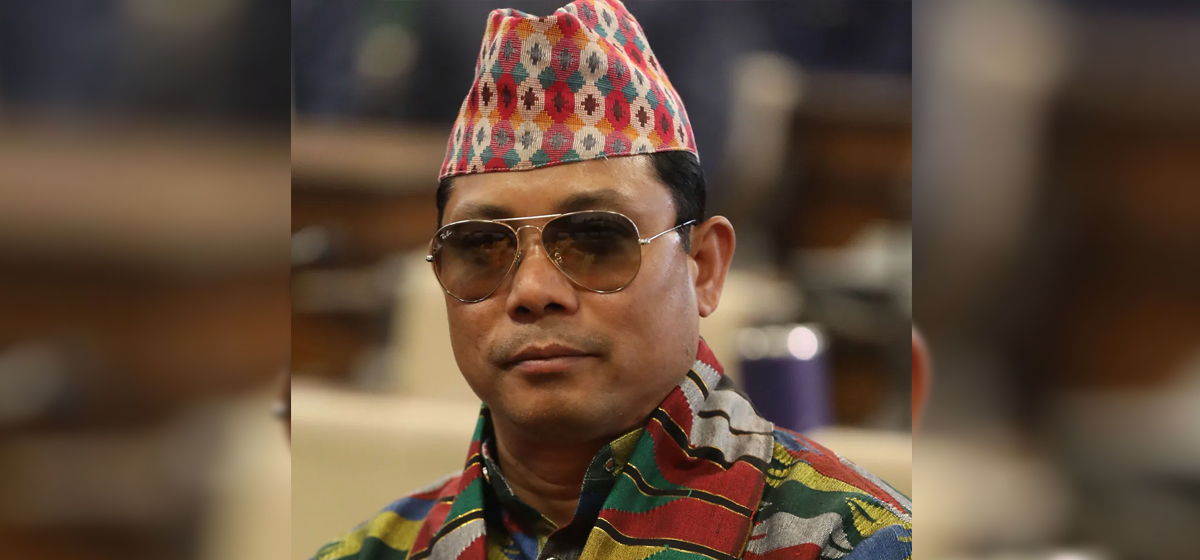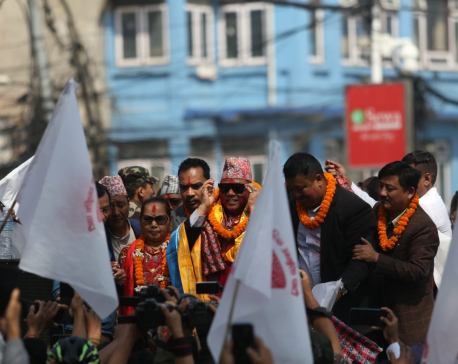
OR
Editorial
Do not Undermine Rule of Law for Political Gains
Published On: May 27, 2023 07:45 AM NPT By: Republica | @RepublicaNepal

In a commendable display of commitment to justice and the rule of law, the Office of the President has sent back a proposal forwarded by the government to grant amnesty to Resham Chaudhary, the mastermind behind the heinous Tikapur incident. By suggesting adherence to prevailing laws and principles established by the Supreme Court, President Paudel has demonstrated that vested political interests should not guide cases of such significance. This decision deserves appreciation and reinforces the importance of upholding the rule of law in our country. The government, through the Ministry of Home Affairs, had initially forwarded a letter to the President on the occasion of the Republic Day, urging the head-of-the-state to grant amnesty to Chaudhary. However, President Paudel's astute response to return the letter highlights the need to respect the legal framework and court rulings. The Office of the President has emphasized the significance of avoiding actions that contradict existing laws, court decisions, and the principles outlined by the Supreme Court. Such principled adherence is vital for maintaining a just and fair society.
Criticism has arisen from various quarters regarding the government's push to grant amnesty to Chaudhary and others involved in the Tikapur carnage. Even before receiving the full text of the Supreme Court's verdict, the government had begun the process of granting clemency. This haste and disregard for due process raises concerns about the prioritization of political interests over justice. Under the provisions of Article 276 of the Constitution, the President possesses the power to pardon, postpone, change, or reduce sentences imposed by courts or administrative bodies. However, it is imperative to emphasize that the exercise of this power must align with the law, as prescribed in the Civil Criminal Code. Section 159(1) of the Code permits individuals sentenced by the court to apply to the President through the Ministry of Home Affairs for pardon, postponement, change, or reduction of sentence. Notably, the application should include a copy of the court decision.
In the case of Chaudhary, the government had moved forward without the full text of the Supreme Court's judgment. This departure from established norms raises questions about the transparency and legitimacy of the process. Additionally, it is crucial to recognize that certain crimes, including corruption, torture, coercion, genocide, kidnapping, human trafficking, money laundering, and drug trafficking, cannot be pardoned according to the Code. These offenses are deemed too grave and warrant strict punishment. The decision passed by a division bench of Supreme Court justices, Dr Anand Mohan Bhattarai and Nahakul Subedi, upholding Chaudhary's life imprisonment sentence further underscores the severity of his actions. The Tikapur incident resulted in the brutal killing of eight individuals, including Senior Superintendent of Police Lakshman Neupane and other members of the police force. The magnitude of the crime demands that justice be served and that the rule of law upheld.
It is crucial to acknowledge the petition submitted by Sharada Kadayat Bohra, the wife of police inspector Keshav Bohora, who lost his life in the Tikapur incident. Her plea to the President's Office not to grant amnesty to Chaudhary represents the voice of victims and their families who have suffered immeasurable pain due to this tragedy. Their quest for justice must not be overshadowed by political expediency. The decision of the President's Office serves as a beacon of hope for those who believe in justice, fairness, and the supremacy of the rule of law. By urging adherence to existing laws and principles laid down by the Supreme Court, President Paudel has reinforced the notion that justice cannot be compromised for political gains. The Office of the President should continue to play a pivotal role in safeguarding the principles that form the bedrock of our democracy. The Tikapur incident should serve as a reminder that no individual is above the law, regardless of their position or political affiliation. Upholding the rule of law is the cornerstone of a just society, and the Office of the President's resolute stance in this matter is commendable and deserving of support.
You May Like This

Hearing on the writ petition filed against Resham Chaudhary’s release today
KATHMANDU, May 31: The hearing on the writ petition filed in the Supreme Court (SC) against the government's decision to commute... Read More...

Govt starts process to grant amnesty to Resham Chaudhary, without waiting for the full text of SC’s verdict
KATHMANDU, May 26: The government has moved ahead with the process to grant amnesty to Resham Lal Chaudhary and others... Read More...

To forgive or not to forgive
Failure of the government to adhere to the Supreme Court verdict in relation to amnesty could further agonize the victims, setting... Read More...




Just In
- MoHP cautions docs working in govt hospitals not to work in private ones
- Over 400,000 tourists visited Mustang by road last year
- 19 hydropower projects to be showcased at investment summit
- Global oil and gold prices surge as Israel retaliates against Iran
- Sajha Yatayat cancels CEO appointment process for lack of candidates
- Govt padlocks Nepal Scouts’ property illegally occupied by NC lawmaker Deepak Khadka
- FWEAN meets with President Paudel to solicit support for women entrepreneurship
- Koshi provincial assembly passes resolution motion calling for special session by majority votes







_20220508065243.jpg)






Leave A Comment